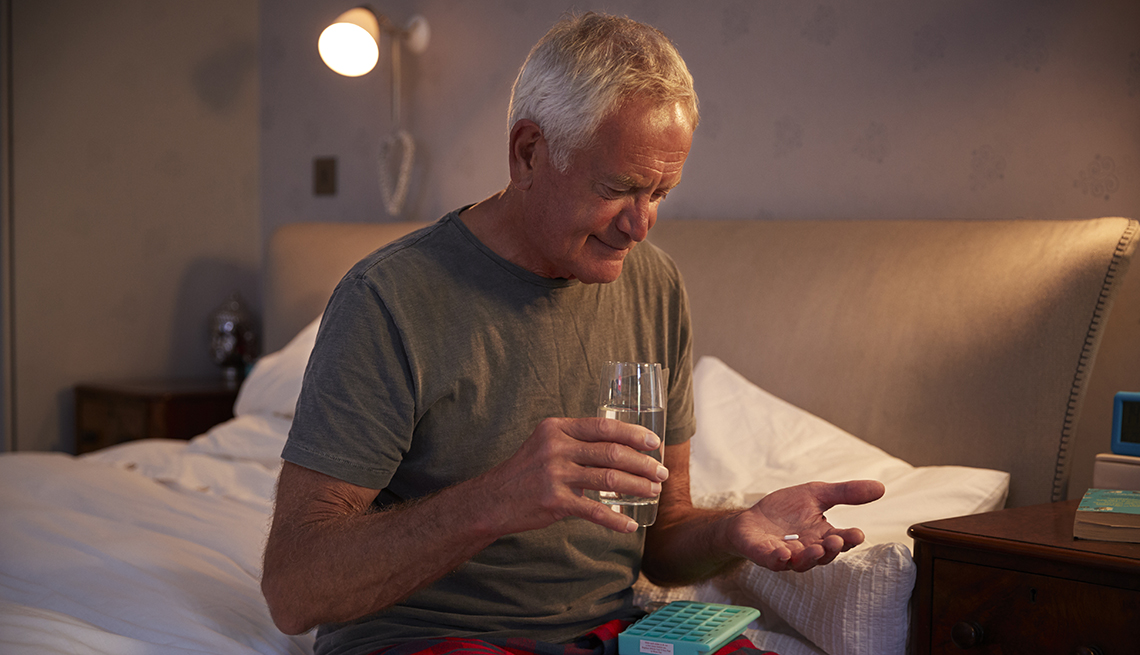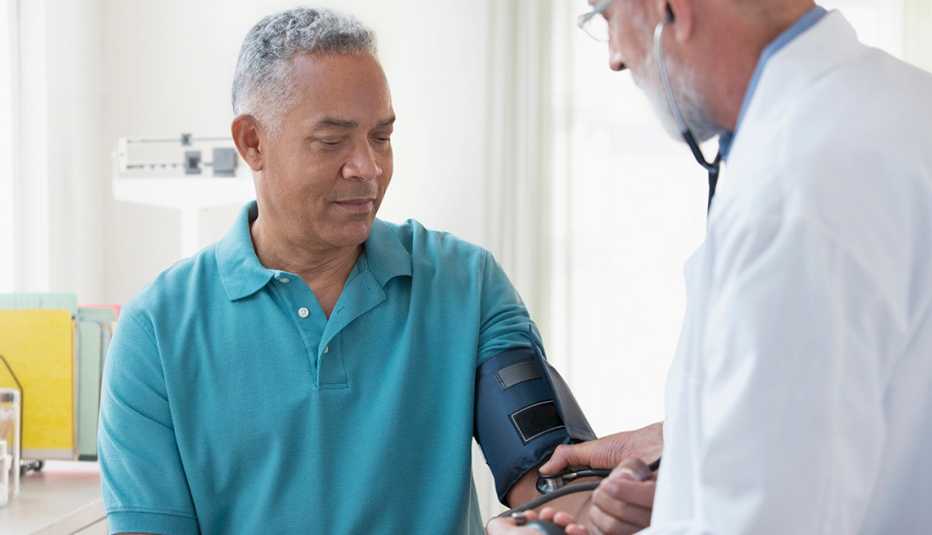Staying Fit
Taking blood pressure medication at night, instead of in the morning, could significantly lower your risk for heart-related disease and death, a new report suggests.
Researchers studied more than 19,000 adults with high blood pressure over an average of more than six years and found that those who took medication at bedtime to lower their pressure cut their risk of suffering — or dying — from a heart attack, stroke or other cardiovascular event by nearly half, compared with those who took their blood pressure pills in the morning.


AARP Membership— $12 for your first year when you sign up for Automatic Renewal
Get instant access to members-only products and hundreds of discounts, a free second membership, and a subscription to AARP the Magazine.
John Osborne, a cardiologist in Dallas and a volunteer expert for the American Heart Association, calls the findings “practice-changing.”
"It's a no-cost, zero-risk, zero-side-effect intervention that could be done tomorrow in every clinic,” said Osborne, who is not affiliated with the study, published this week in the European Heart Journal. “Just changing to evening dosing could translate to substantial reductions across the whole realm of cardiovascular events.”
Blood pressure has a daily pattern, Osborne explained. It normally dips at night and rises in the morning. Then, by the afternoon, it starts to go down again. This natural rhythm helps to explain why taking medicine to lower blood pressure may work best when done at night.
"It better targets the morning rise in blood pressure,” Osborne said. Whereas, “if you take your blood pressure medicine in the morning, it may already be after the peak, and then the peak concentration of the drug is hitting a few hours later, well after the peak of blood pressure.”
Study participants who took all of their blood pressure pills at night lowered their risk for heart attack by 34 percent, their risk for stroke by 49 percent and their risk for heart failure by 42 percent, compared with those who took their medicine in the morning, the study found. Overall, the risk of death from heart or blood vessel problems was cut by more than 50 percent for the people who took their pills at night.

































































